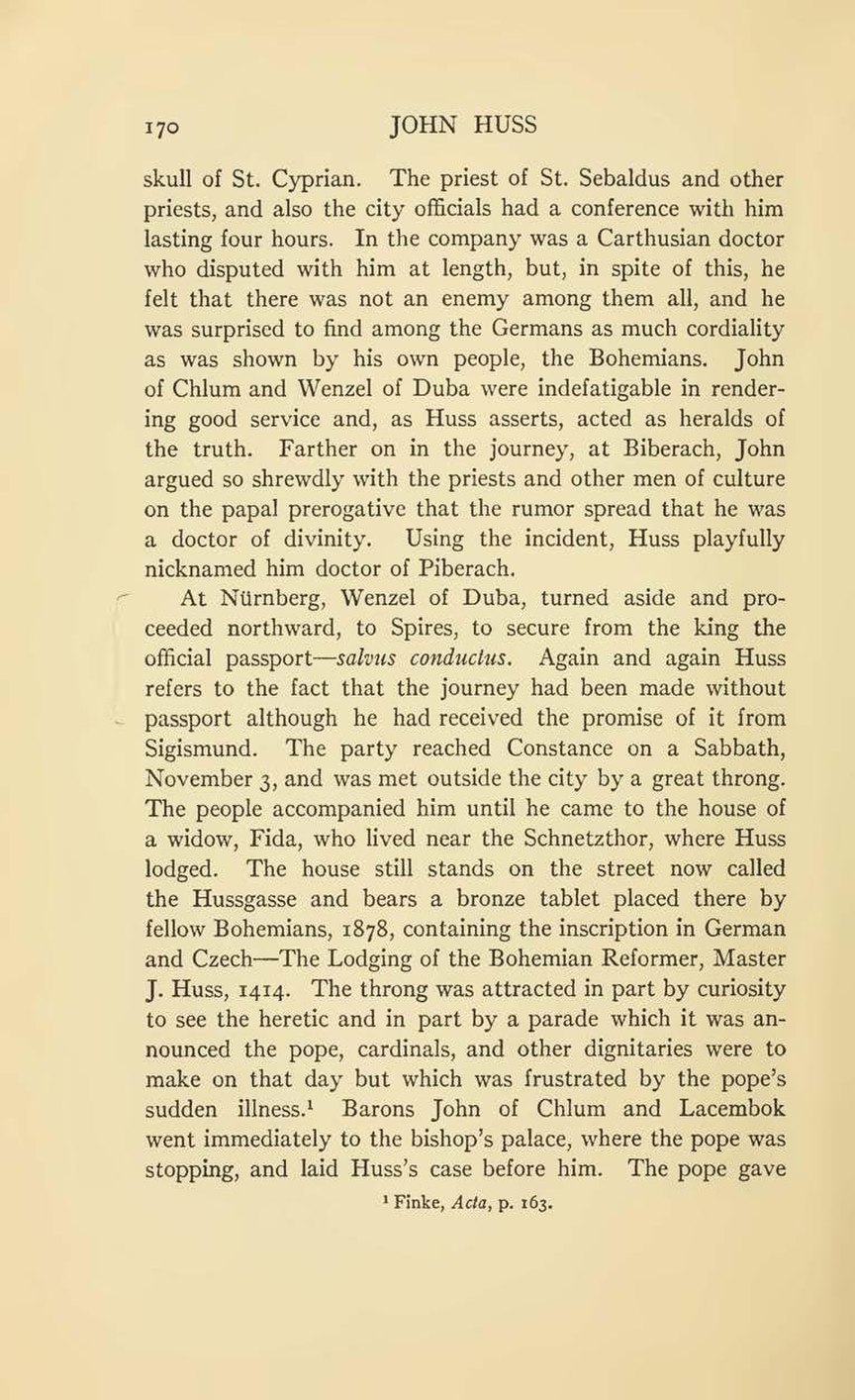skull of St. Cyprian. The priest of St. Sebaldus and other priests, and also the city officials had a conference with him lasting four hours. In the company was a Carthusian doctor who disputed with him at length, but, in spite of this, he felt that there was not an enemy among them all, and he was surprised to find among the Germans as much cordiality as was shown by his own people, the Bohemians. John of Chlum and Wenzel of Duba were indefatigable in rendering good service and, as Huss asserts, acted as heralds of the truth. Farther on in the journey, at Biberach, John argued so shrewdly with the priests and other men of culture on the papal prerogative that the rumor spread that he was a doctor of divinity. Using the incident, Huss playfully nicknamed him doctor of Piberach.
At Nürnberg, Wenzel of Duba, turned aside and proceeded northward, to Spires, to secure from the king the official passport—salvus conductus. Again and again Huss refers to the fact that the journey had been made without passport although he had received the promise of it from Sigismund. The party reached Constance on a Sabbath, November 3, and was met outside the city by a great throng. The people accompanied him until he came to the house of a widow, Fida, who lived near the Schnetzthor, where Huss lodged. The house still stands on the street now called the Hussgasse and bears a bronze tablet placed there by fellow Bohemians, 1878, containing the inscription in German and Czech—The Lodging of the Bohemian Reformer, Master J. Huss, 1414. The throng was attracted in part by curiosity to see the heretic and in part by a parade which it was announced the pope, cardinals, and other dignitaries were to make on that day but which was frustrated by the pope’s sudden illness.[1] Barons John of Chlum and Lacembok went immediately to the bishop’s palace, where the pope was stopping, and laid Huss’s case before him. The pope gave
- ↑ Finke, Acta, p. 163.
